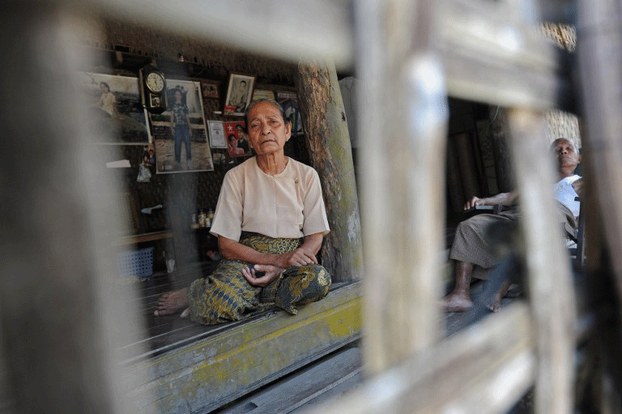




Myanmar's first census in more than 30 years should focus only on key demographic questions to avoid deepening ethnic and religious divides ahead of crucial elections next year, a conflict prevention group has proposed.
In a report, the Brussels-based International Crisis Group (ICG) said certain topics slated for the March 30-April 10 census risk “inflaming tensions at a critical moment in Myanmar’s peace process and democratic transition.”
The U.S. $75 million census project, jointly run by the Myanmar government and the U.N. Population Fund, will mobilize around 100,000 schoolteachers to count every person in the country for the purpose of national planning and development.
“The census process should be urgently amended to focus only on key demographic questions, postponing those which are needlessly antagonistic and divisive—on ethnicity, religion, citizenship status—to a more appropriate moment,” the report said Wednesday.
“By doing so, the government, United Nations and donors can demonstrate that they are sensitive to the serious risks presented by the census as currently conceived, and that they are willing to respond to the deep reservations expressed by many important groups in the country.”
Since coming to power in 2011, following decades of military rule, reformist President Thein Sein’s government has faced difficult challenges in his efforts to forge national reconciliation.
His administration is urgently trying to broker a nationwide peace agreement with armed ethnic groups in the country’s remote border areas while at the same time working to quell violence perpetrated largely by majority Buddhists against Muslim communities.
“Myanmar is struggling to end decades-old, multiple, and overlapping ethnic conflicts in its peripheries,” the ICG report said.
“At the same time, recent months have seen an increasingly virulent Burman-Buddhist nationalist movement lead to assaults on Muslim minority communities. A census which risks further increasing these tensions is ill-advised.”
Ethnic classification
The United Nations Population Fund had "been assured that international standards will be upheld in the training of enumerators and supervisors [and in the] full census coverage throughout the country," the Wall Street Journal reported, quoting a country representative earlier this week.
But ICG cited what it called “flaws in the [country’s] ethnic classification system,” which is based on an outdated list of 135 groups and had led to mistrust by ethnic communities who believe the government manipulates the categories for political purposes.
It said the old system creates too many ethnic subdivisions in some cases, while lumping others together, and that a number of groups have demanded a postponement and reclassification of the census based on consultation with their communities.
“The classification is related to more than ethnic identity; it will have direct political ramifications,” the report said, arising from ethnically delineated constituencies with ministerial representation for groups that meet a certain population threshold.
“Groups fear that if their communities are subdivided or misclassified, they may be denied that political representation,” it said.
“There is no possibility to report mixed ethnicity, forcing people into a single identity, to the potential disadvantage of some smaller groups.”
Religious tensions
Ongoing religious issues in the country have added to the controversy over the census, which ICG said could lend support to the belief by majority Buddhists that the country is being “overrun” by Muslims.
It said there were “strong indications” that the country’s 1983 census found the Muslim population to be around 10 percent, but purposefully underreported it at 4 percent to avoid popular unrest.
“The results of the current census could therefore be mistakenly interpreted as providing evidence for a three-fold increase in the Muslim population in the country over the last 30 years, a potentially dangerous call to arms for extremist movements,” it said.
ICG also cited continued tensions over issues of ethnicity, religion and citizenship in Myanmar’s western Rakhine state where Buddhist attacks on the Muslim Rohingya population have left more than 200 dead and tens of thousands displaced since 2012.
Buddhist Rakhines consider Rohingyas illegal immigrants from Bangladesh, despite many families having lived in Myanmar for generations, and see themselves fighting for their ethnic and religious survival against what they say is a rapidly growing Muslim community.
“In addition to the tensions that could flare when official figures on the Muslim population in the state become known, some extremist Rakhine political actors undoubtedly fear that the census would establish a baseline Rohingya population that would make it more difficult to sustain the narrative of recent migration in the future,” the report said.
It said that Rakhine politicians are already demanding to form militias to prevent what they claim are additional populations of “Bengali Muslims” infiltrating the region in order to be included in the census count.
Most people in Myanmar call the Rohingyas “Bengali,” indicating that they have illegally immigrated from neighboring Bangladesh.
Recommendations
ICG said that with 2015 elections likely to radically transform the country’s political landscape, Myanmar is at a “very sensitive moment in its transition.”
“The next two years will thus be highly volatile. A poorly timed census that enters into controversial areas of ethnicity and religion in an ill-conceived way will further complicate the situation,” it said.
“For a country that has no recent experience of conducting a census, comparative lessons from other transitional and conflict-affected contexts could have informed Myanmar’s efforts and helped to significantly mitigate the risks.”
But ICG said there was “still time to adjust the process” and recommended limiting the census to just the key demographics on age, sex, and marital status—the first six of 41 questions on the survey.
“This will provide the most important data without touching at this stage on the controversial issues of identity and citizenship,” it said.
“The limited technical complication of adjusting the process pales into insignificance when placed against the much larger risk—to the very fabric of Myanmar society at this delicate stage in the country’s transition—of proceeding with the current, ill-thought-out process.”